In Pennsylvania, homeowners associations (HOAs) are responsible for maintaining common areas of a neighborhood. Homeowners in the association are required to pay dues on time to ensure the upkeep of these areas.
Unfortunately, when an HOA member fails to pay their dues, they can face serious financial repercussions. Delinquent HOA dues can lead to the association placing a lien on the home of the delinquent homeowner.
This means that if the homeowner decides to sell their property, they must first settle any debts with the HOA before they can receive any proceeds from the sale of their home. To further complicate matters, HOAs have the right to file a lawsuit against members who fail to pay their dues which could result in court costs and other legal fees assessed against them.
It is important for homeowners in Pennsylvania to understand these consequences and take steps towards avoiding them.
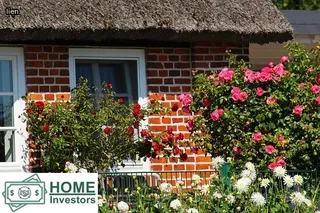
When delinquent HOA or COA dues in Pennsylvania are not paid, the homeowner's association (HOA) or condominium owner's association (COA) may institute a foreclosure process. This is a legal process that allows the HOA or COA to take possession of the unpaid property and sell it to pay for the delinquent fees and any additional costs associated with the foreclosure.
In most cases, a lien is placed on the property and must be satisfied before any sale can take place. The homeowner will then have to pay these costs before they are able to reclaim their home.
If a homeowner does not satisfy the unpaid dues and associated costs, they risk losing ownership of their property to foreclosure. Homeowners should also be aware that if their home does go into foreclosure, their credit score could suffer as a result.
It is critical for homeowners in Pennsylvania to understand both the consequences of delinquent HOA or COA assessments, as well as how they work within the foreclosure process.
Failing to pay Homeowners Association (HOA) or Community Owners Association (COA) fees can have serious legal and financial consequences in Pennsylvania. It is important to understand the risks associated with delinquent dues, as they can be significant.
Failing to pay fees could result in a lien being placed on your home, which could hurt your credit score and ultimately inhibit your ability to obtain loans or mortgages. Additionally, you may be subject to late payment charges and other fines, which can quickly add up.
In some cases, associations are able to take legal action against residents who do not pay their HOA or COA fees, resulting in lawsuits that can further damage an individual's financial standing. Ultimately, it is essential for Pennsylvanians to stay current with their HOA or COA fees in order to avoid these risks and maintain their personal finances.
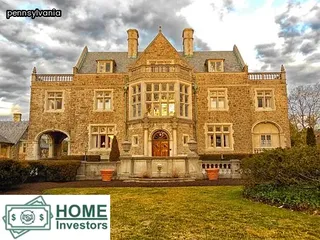
In Pennsylvania, when a homeowner fails to pay their Homeowner Association (HOA) or Condominium Owner Association (COA) fees, they can face serious legal consequences. These delinquent dues can lead to foreclosure proceedings being initiated by the association.
It's important for homeowners to understand these repercussions in order to take the necessary steps to avoid them. If a homeowner is unable to make payment, they should be proactive in reaching out to their HOA or COA board and discuss potential solutions.
The board may be willing to set up an installment plan or look into other options such as a loan deferment or modification of terms. Failure to act can result in the association filing a lien against the property and ultimately initiating foreclosure proceedings that could lead to the loss of the home and all associated equity.
Homeowners facing this situation must also consider that any outstanding debts will remain after foreclosure and must be paid before any new home purchase can be completed. Understanding these legal implications is key for homeowners in Pennsylvania who are struggling with delinquent HOA or COA dues.
Navigating the Homeowners Association (HOA) collection process for delinquent dues in Pennsylvania can be a difficult and confusing task for homeowners. Understanding the consequences of not paying dues is vital to avoiding potential legal ramifications.
It is the homeowner’s responsibility to stay current with their HOA payments, as failure to do so can lead to fines, liens, suspensions of privileges or even foreclosure. In order to avoid such penalties, it is important for homeowners to understand their rights and responsibilities under state laws related to HOAs.
Homeowners should also familiarize themselves with the HOA collection process, which typically involves issuing late payment notices and taking necessary steps towards collecting on any money owed. Additionally, it may be beneficial for homeowners to seek out professional legal advice if they are facing serious delinquency issues with their HOA dues.
Taking these proactive measures can help alleviate any confusion around understanding the consequences of delinquent HOA dues in Pennsylvania and navigating the HOA collection process.
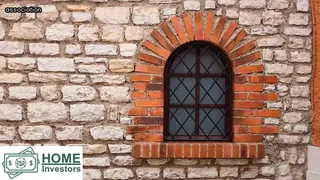
Homeowners in Pennsylvania have certain rights and responsibilities when it comes to delinquent HOA dues. It is important for homeowners to understand the consequences of not paying their dues or assessments on time.
Homeowners are responsible for paying the full amount of their dues, as well as any late fees or penalties that may apply. If a homeowner fails to pay their dues, the association has the right to place a lien on the property and begin foreclosure proceedings.
The association can also take other legal action against the homeowner, such as filing suit in court, garnishing wages, or suspending privileges such as use of common areas. Homeowners should be aware that these actions can have long-term financial implications and should be avoided if at all possible.
In order to avoid delinquency and its consequences, homeowners should keep track of due dates and make payments on time. Understanding one's rights and responsibilities concerning delinquent HOA dues is essential for protecting oneself from potentially costly legal actions taken by an association in Pennsylvania.
When it comes to avoiding foreclosure for delinquent Homeowners Association (HOA) or Condo Owners Association (COA) dues, the most important thing to do is stay informed. Understanding the laws of Pennsylvania can help you understand the consequences and how best to avoid them.
Staying current on payments is one of the most obvious solutions; if you are unable to make your regular payments, contact your HOA or COA immediately, as they will likely be willing to work out an alternate payment option. It is better to negotiate with them than risk a potential foreclosure.
Additionally, speak with a lawyer familiar with real estate law in Pennsylvania. Knowing your rights and legal options will help you decide whether it is worthwhile to keep up with payments or cut your losses and let the property go into foreclosure.
Furthermore, consider taking out a loan or using a credit card in order to make dues payments on time, but beware of associated fees and interest rates that could add up quickly. Although foreclosure avoidance may not always be possible, homeowners should take all steps necessary to understand the consequences and explore solutions before making any decisions.
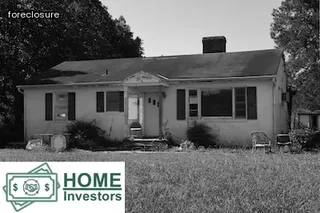
When it comes to paying delinquent HOA dues in Pennsylvania, homeowners should be aware of the consequences of failing to do so. The consequences range from late payment fees and other fines to legal action.
To avoid these penalties, homeowners should create a payment plan with their HOA that meets their needs and budget. Furthermore, they should consider reaching out to organizations such as the Department of Housing and Urban Development (HUD) or state housing finance agencies to help them pay off overdue payments.
Additionally, homeowners can look into options such as refinancing or loan modification if they are facing financial hardship due to delinquent HOA dues. Finally, it is important for homeowners to stay in communication with their HOA and keep track of all payments made on time, as this will help them avoid any further issues with late payments.
When a homeowner in Pennsylvania fails to pay delinquent Homeowners Association (HOA) dues, the consequences can have a wide-reaching impact on mortgage companies and liens from HOAs. Mortgage companies are typically impacted in two ways; either through the loss of a foreclosure or through their own attempt to collect HOA dues.
When an HOA attempts to foreclose on a home, the mortgage company suffers losses due to decreased value of the property, potential legal costs, and having to re-market the property. In some cases, mortgage companies may even be held responsible for unpaid assessments if they have not adequately monitored payments.
If a mortgage company attempts to collect on delinquent HOA dues, they may face obstacles such as HOAs that are unable or unwilling to cooperate with collection efforts. Additionally, when homeowners fail to pay HOA dues, HOAs may place liens on properties which can remain in effect until paid off in full – this means that any sale of the property must take into account the amount owed for back payments.
Therefore, it is important for both homeowners and mortgage companies alike to understand how late HOA payments can affect them financially and legally.

Homeowners Associations (HOAs) are responsible for collecting unpaid dues from delinquent homeowners in Pennsylvania. The process of collection is typically handled by a HOA board or management company, who have various tools to help them obtain the payments owed.
Generally, HOAs will begin by sending out notices and demands for payment, which often include deadlines for payment and potential penalties for nonpayment. If these notices go ignored, HOAs may pursue court action and file a lien against the delinquent homeowner's property.
This means that the homeowner would be unable to sell or refinance their home until the lien is paid in full. Additionally, HOAs can also impose late fees, fines, and even suspend privileges like access to amenities until dues are paid up-to-date.
Ultimately, it is important for Pennsylvania homeowners to understand the consequences of delinquent HOA dues and take necessary steps to avoid falling behind on payments so they can continue enjoying the benefits of living in their community.
When a homeowner in Pennsylvania fails to pay their Homeowner Association (HOA) dues, they risk severe financial consequences. The HOA is empowered to take legal action and impose fines on delinquent homeowners.
In addition, the HOA can file a lien against the owner's property, preventing them from refinancing or selling until the dues are paid in full. They may also be required to pay additional late fees, interest charges and collection costs.
The HOA may even initiate foreclosure proceedings, forcing the homeowner to vacate their home. In addition to these financial penalties, homeowners who fail to pay their HOA dues may face social consequences such as damaging their reputation within the community or jeopardizing their chances of being approved for future loans or mortgages.
Understanding these potential repercussions can help Pennsylvania homeowners avoid serious financial hardship caused by delinquent HOA dues.
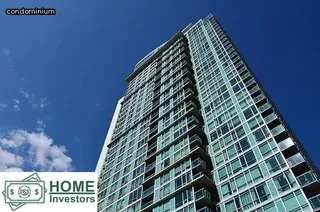
If you’re looking to get rid of an HOA in Pennsylvania, it’s important to understand the consequences of delinquent dues. Unpaid assessments can lead to a lien being placed on the property, resulting in additional fees and potential foreclosure.
In some cases, a homeowner may have to pay additional interest and late charges if dues are not paid on time. Furthermore, an unresolved delinquency could be reported to credit bureaus and damage your credit score.
To avoid these potentially serious consequences, it's important for homeowners in Pennsylvania to review their governing documents before making any decisions about their HOA.
In Pennsylvania, the governing body of a Homeowners' Association (HOA) is typically an elected Board of Directors. This Board is responsible for upholding and enforcing the covenants and rules established in the association’s governing documents.
The Board has the authority to impose fines, assessments, and other penalties for failure to comply with these documents. Furthermore, they have the power to levy delinquent HOA dues when a homeowner fails to pay their assessment.
By understanding who governs the HOA in Pennsylvania, one can understand their role in enforcing delinquent HOA dues and consequences that may result from nonpayment.
The highest HOA fee in Pennsylvania can vary widely depending on the size and location of the Homeowners' Association (HOA). In general, larger HOAs tend to have higher dues, while smaller HOAs may charge lower fees.
Additionally, HOAs located in more affluent areas may also be subject to higher deliquent HOA dues. It is important for homeowners to understand the potential financial implications of delinquent HOA dues in Pennsylvania, as failure to pay these fees could result in fines or even foreclosure.
To help avoid costly penalties, it is essential that homeowners stay up-to-date on their obligations and remain aware of their HOA’s fee structure. By understanding the consequences of delinquent HOA dues in Pennsylvania and staying current on their payments, homeowners can ensure they don't face any unnecessary repercussions from their Homeowners' Association.